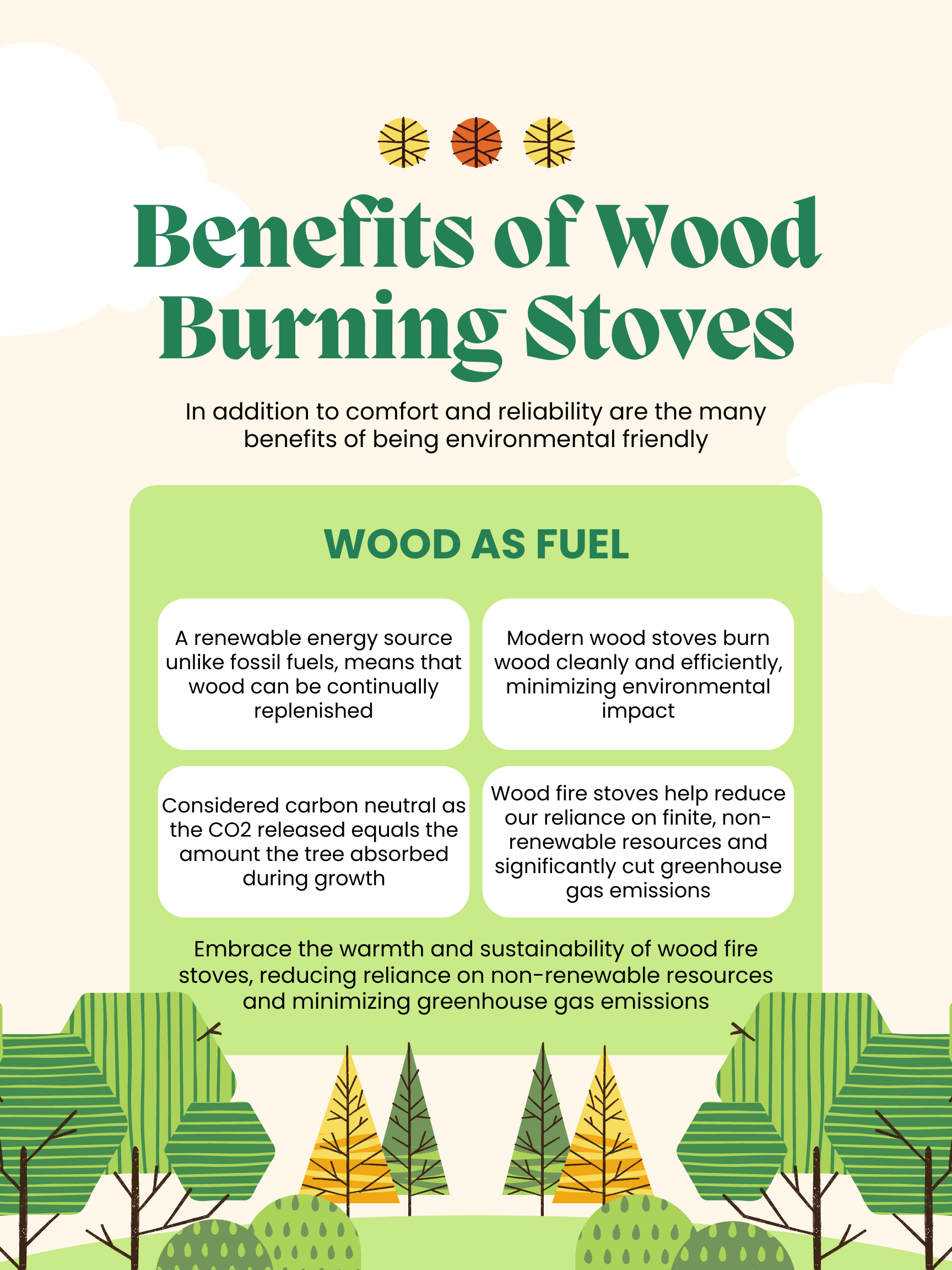Benefits of Wood Burning Stoves: Eco-Friendly Heating

Wood burning stoves have been a traditional heating solution for centuries, and they continue to be a popular choice for many homeowners today. Apart from their cozy ambiance and charming appeal, wood fire stoves offer a range of benefits, particularly in terms of environmental sustainability and cost savings. In this information piece, we'll delve into the environmental and cost-saving benefits of using wood fire stoves for heating.
Environmental Benefits:
Renewable Energy Source:Wood is a renewable energy source, unlike fossil fuels such as coal, oil, and natural gas. This means that as long as forests are managed sustainably, wood can be continually replenished.
Low Carbon Footprint: When burned efficiently, wood produces lower carbon emissions compared to fossil fuels. Modern wood stoves are designed to burn wood cleanly and efficiently, minimizing their environmental impact.
Carbon Neutral:Wood is considered carbon neutral because the carbon dioxide released during combustion is roughly equal to the amount that the tree absorbed during its growth. This cycle makes wood a more sustainable heating option compared to fossil fuels.
Reduced Dependence on Non-Renewable Resources:Using wood burning stoves reduces our reliance on non-renewable resources such as coal, oil, and natural gas, which are finite and contribute significantly to greenhouse gas emissions.
Cost-Saving Benefits:
Lower Heating Costs:: Wood is often more affordable than other heating fuels, making wood burning stoves a cost-effective heating solution. In many cases, homeowners can save significantly on their heating bills by using wood burning stoves.
Energy Independence: By using wood as a heating source, homeowners can reduce their dependence on external sources of energy, such as electricity or gas. This can provide a sense of security, especially during times of energy price fluctuations.
Local Availability: Wood is often sourced locally, which reduces transportation costs and supports local economies. This can further contribute to cost savings for homeowners.
Long-Term Savings: Investing in a high-quality wood fire stove can lead to long-term savings, as these stoves are durable and can last for many years with proper maintenance. Additionally, wood burning stoves can increase the value of a home, making them a worthwhile investment.
Wood burning stoves offer a range of environmental and cost-saving benefits, making them an attractive heating option for homeowners. By choosing to heat their homes with wood, homeowners can reduce their carbon footprint, save money on heating costs, and enjoy the cozy warmth of a wood burning stove.
